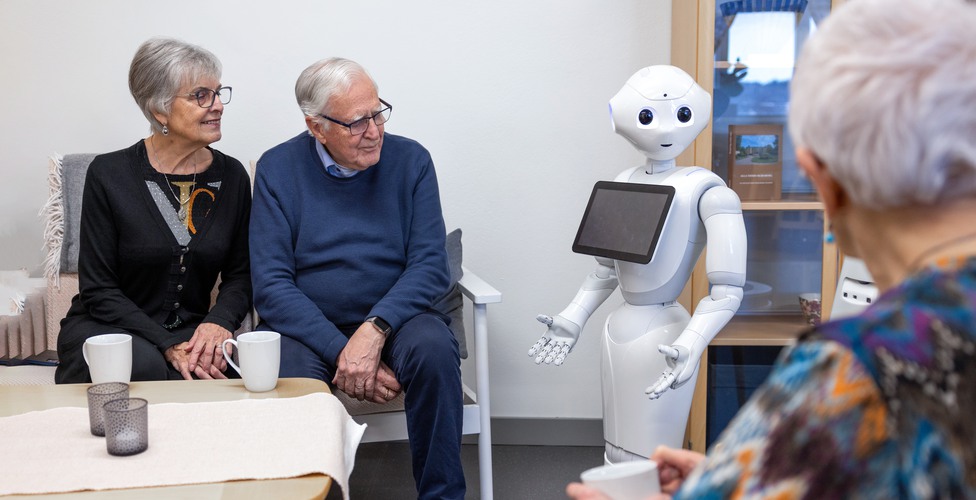With the help of robots, researchers in Skövde aim to develop games that promote health and well-being among older adults. The project has received SEK 6.2 million in funding from the Kamprad Family Foundation.

More and more people are reaching old age, and many wish to continue living at home. At the same time, the proportion of people of working age is decreasing. This creates new demands on how we meet the needs of older adults in terms of both care and social interaction. Loneliness is a growing risk factor, with clear links to both physical and mental health issues.
Researchers at the University of Skövde now want to use games as a means to create meaningful activities for older individuals. Games inspire playfulness, stimulate the brain, and often serve as a bridge to connect with others. By tapping into this interest, whether in card games, board games, or digital games, the researchers hope to counteract passivity and social isolation.
Robots as Game Partners
In the project Robots as Game Partners and Game Leaders for Older Adults (RoSA), researchers are exploring how social robots can make everyday life more fun and meaningful. The goal is not only for older people to play games but also to be involved in shaping them.
The researchers are developing two game prototypes. One challenge the body, with features that adjust pace and difficulty to the user’s needs. The other stimulates the mind through elements that train memory, attention, and strategy.
– We’re using the prototypes to create a framework with design strategies for how robots can act as game leaders and playing partners, says Beatrice Alenljung, Associate Professor of Informatics at the University of Skövde, and project leader of RoSA.
Funding for Better Quality of Life for Older Adults
The project is receiving SEK 6.2 million in support from the Kamprad Family Foundation, which aims to contribute to a better everyday life for older adults.
– Thanks to the funding, we can bring all our ideas to life—from the first workshop to the prototypes. Working on something that can make everyday life a little better for older adults feels important and meaningful, says Catharina Gillsjö, Professor of Nursing at the University of Skövde.
Collaboration with Care Providers
Older adults, care professionals, and relatives actively participate in the research. They participate in workshops where game ideas are developed and tested, from concept to prototype.
– Collaborating with those who will actually use the robots is absolutely essential. Through the test environment at Skaraborgs Health Technology Center, we have a home-like setting to test ideas in a real-world context. This provides valuable insights into what works – and what doesn’t, says Catharina Gillsjö.





